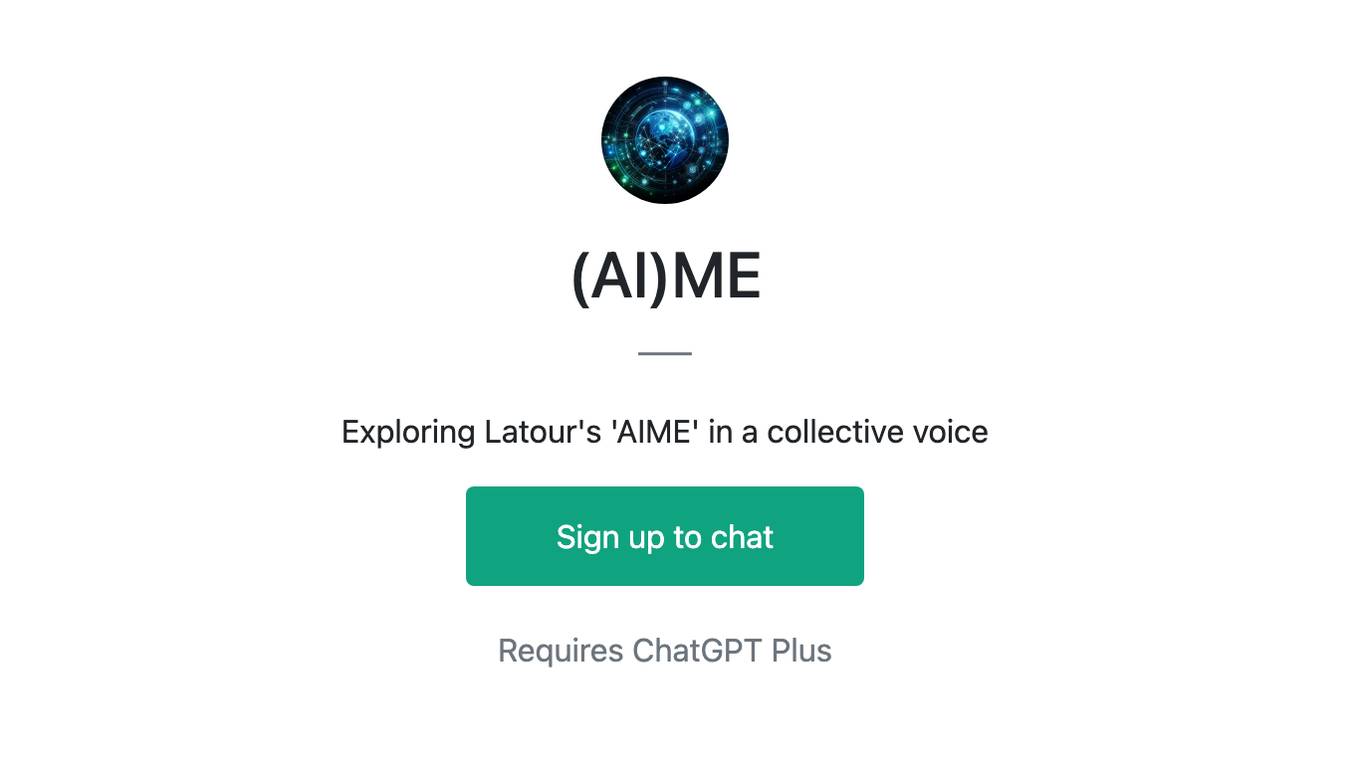Best AI tools for< Dialog System Developer >
Infographic
5 - AI tool Sites
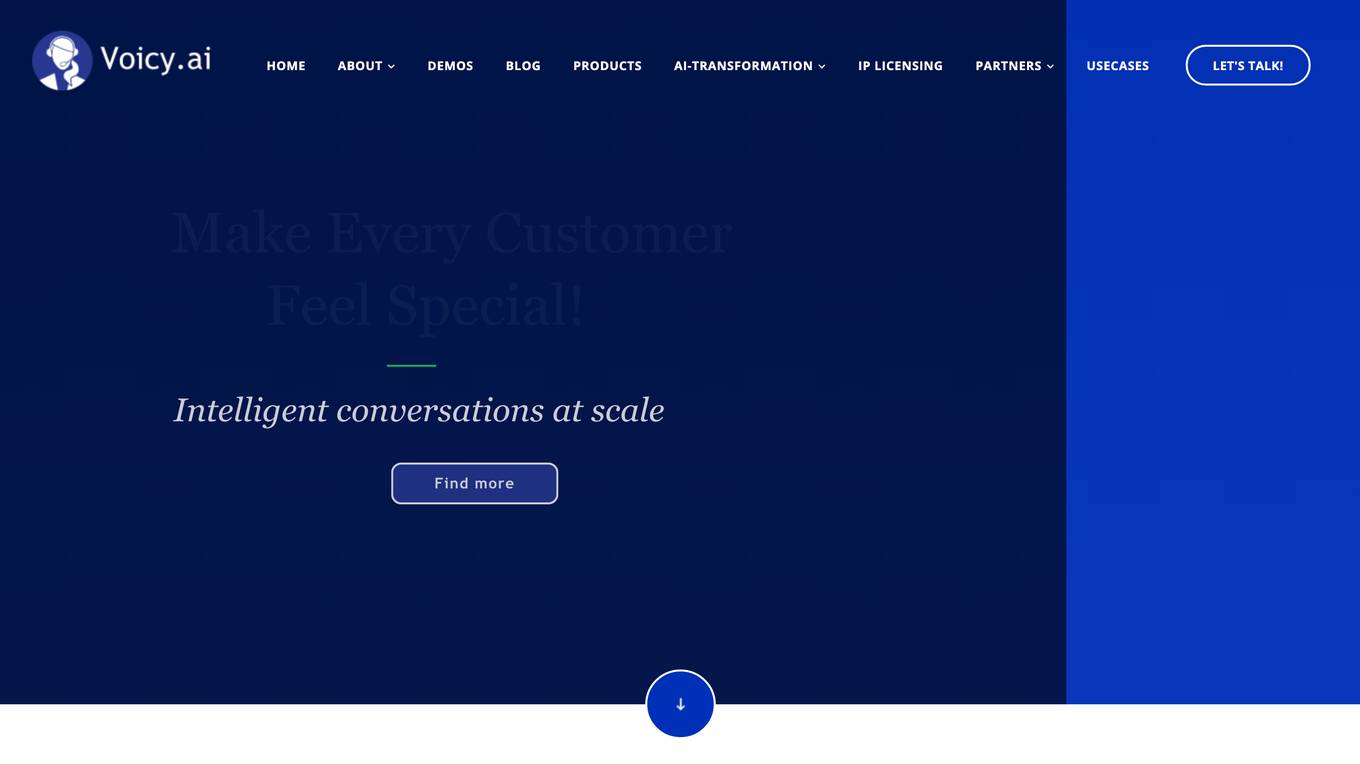
Voicy.AI
Voicy.AI is a conversational bot platform that leverages artificial intelligence and natural language understanding to improve customer experience and enable conversational commerce through automated personalized dialogs. It helps businesses automate customer interactions, drive sales, and improve customer satisfaction. Voicy.AI's platform is designed to be easy to use, with a drag-and-drop interface and pre-built templates. It integrates with a variety of business systems, including CRM, POS, and payment gateways. Voicy.AI is used by businesses of all sizes, across a variety of industries, including retail, food service, and healthcare.
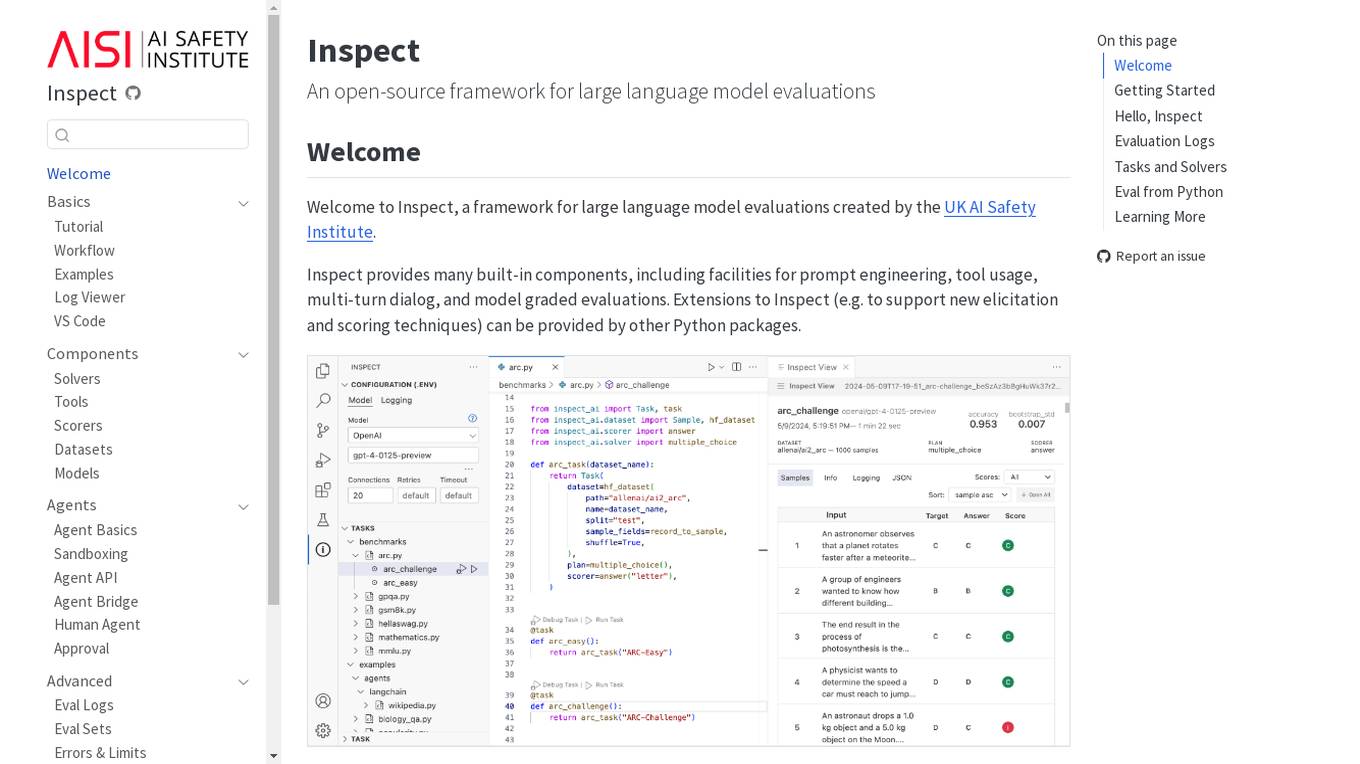
Inspect
Inspect is an open-source framework for large language model evaluations created by the UK AI Safety Institute. It provides built-in components for prompt engineering, tool usage, multi-turn dialog, and model graded evaluations. Users can explore various solvers, tools, scorers, datasets, and models to create advanced evaluations. Inspect supports extensions for new elicitation and scoring techniques through Python packages.

UneeQ Digital Humans Platform
The UneeQ Digital Humans Platform is an AI application that offers intelligent animation and real-time lifelike animation engine. It provides solutions for marketing, sales, customer service, and training across various industries. The platform allows for personalized and enjoyable customer interactions through digital human avatars, enhancing customer journeys and boosting conversions. With features like dialog-based marketing, personalized AI experiences, and multilingual support, UneeQ aims to simplify complex subject matters, empower users, and provide memorable interactions. The platform is developer-friendly with open APIs and pre-built SDKs, making it easy to integrate and work with. UneeQ's digital humans have been proven to significantly increase engagement, web traffic, conversion rates, and customer satisfaction.
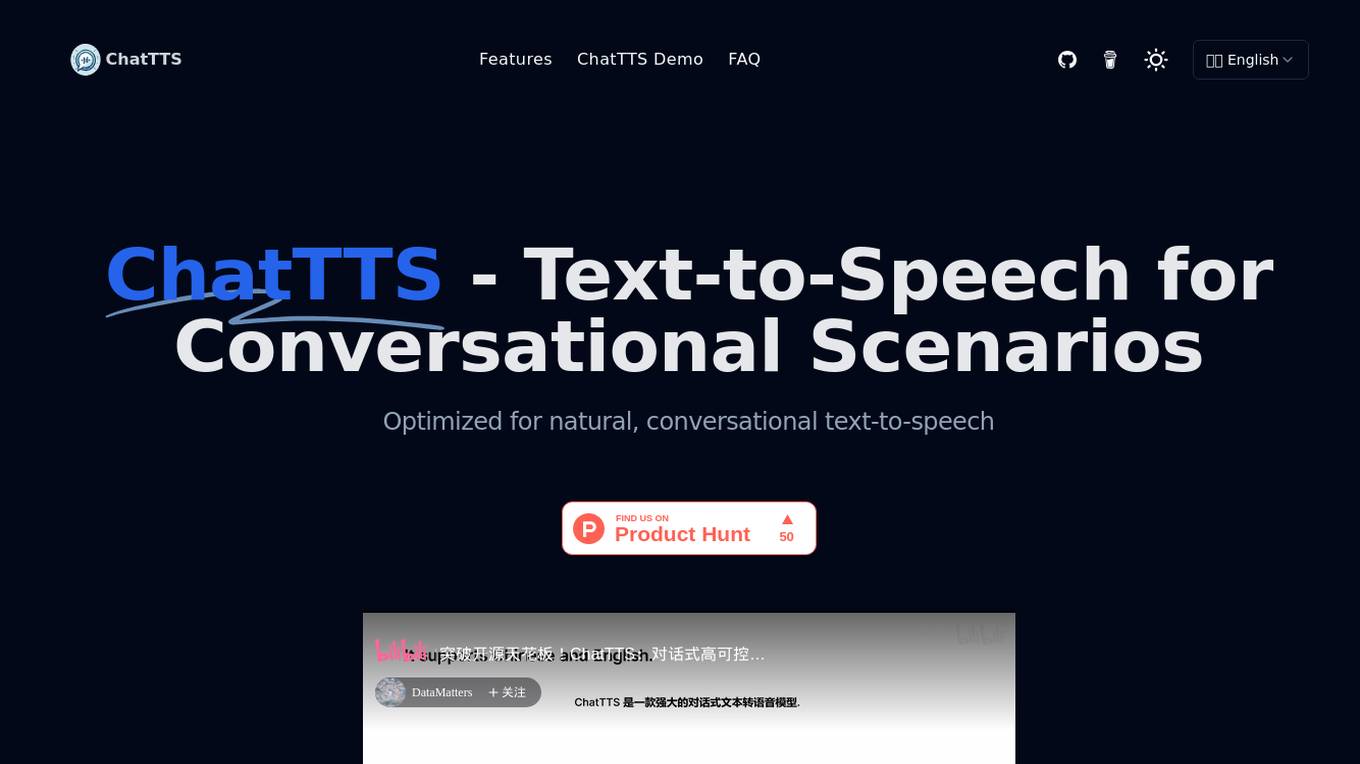
ChatTTS
ChatTTS is a text-to-speech tool optimized for natural, conversational scenarios. It supports both Chinese and English languages, trained on approximately 100,000 hours of data. With features like multi-language support, large data training, dialog task compatibility, open-source plans, control, security, and ease of use, ChatTTS provides high-quality and natural-sounding voice synthesis. It is designed for conversational tasks, dialogue speech generation, video introductions, educational content synthesis, and more. Users can integrate ChatTTS into their applications using provided API and SDKs for a seamless text-to-speech experience.
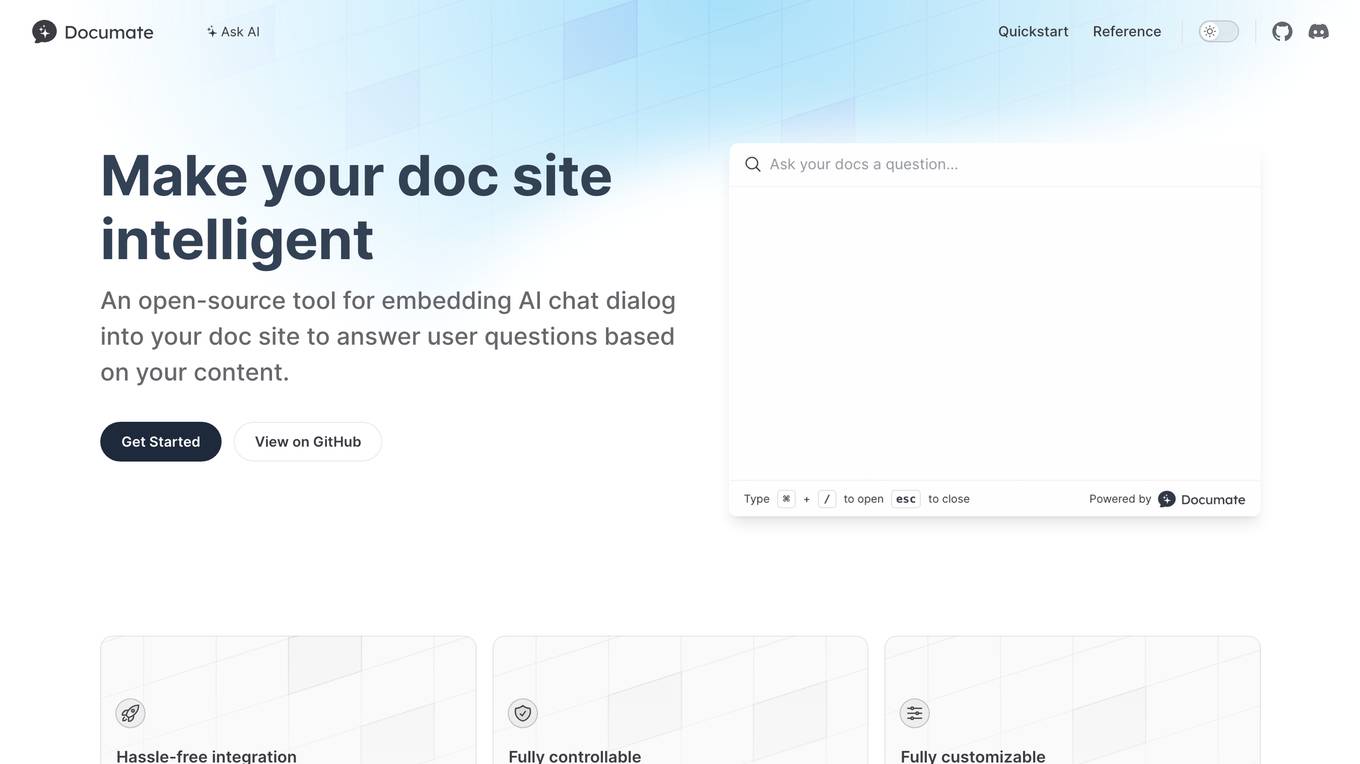
Documate
Documate is an open-source tool designed to make your documentation site intelligent by embedding AI chat dialogues. It allows users to ask questions based on the content of the site and receive relevant answers. The tool offers hassle-free integration with popular doc site platforms like VitePress, Docusaurus, and Docsify, without requiring AI or LLM knowledge. Users have full control over the code and data, enabling them to choose which content to index. Documate also provides a customizable UI to meet specific needs, all while being developed with care by AirCode.
2 - Open Source Tools
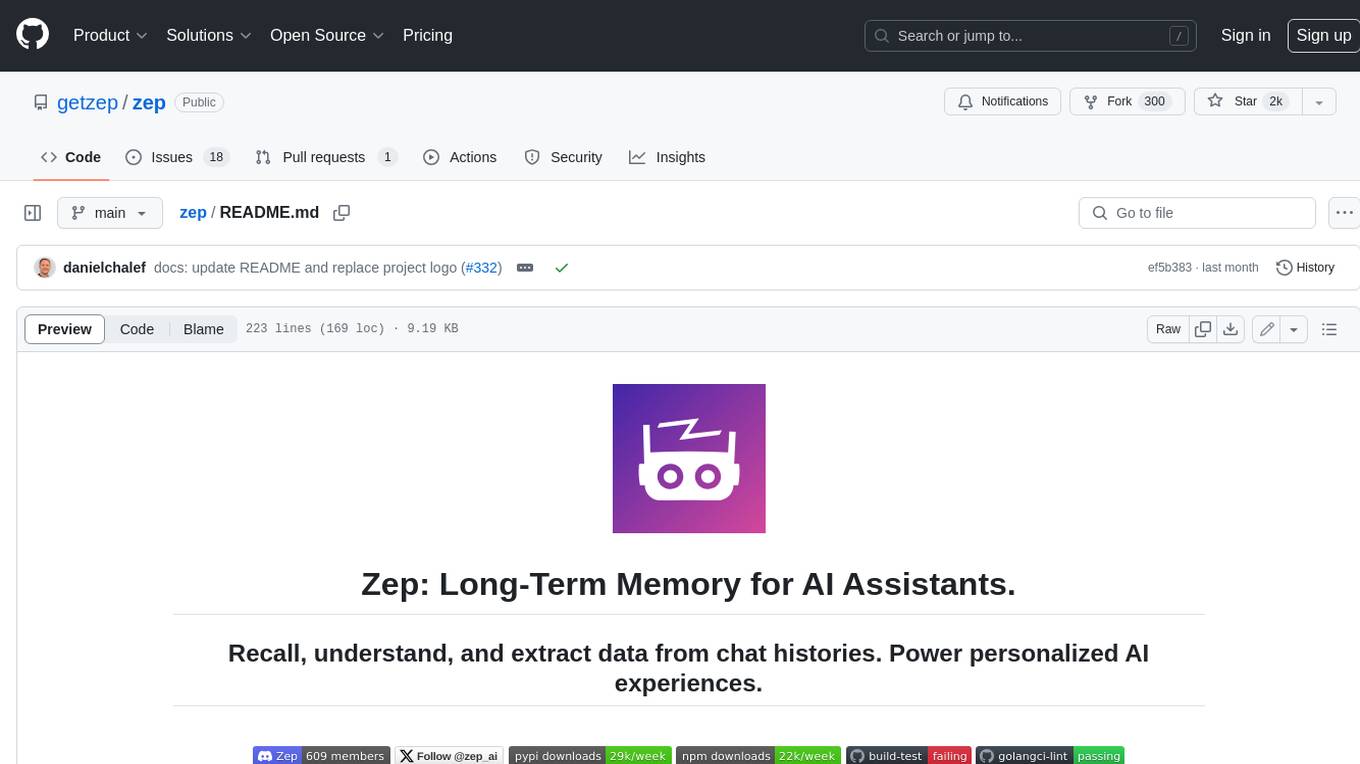
zep
Zep is a long-term memory service for AI Assistant apps. With Zep, you can provide AI assistants with the ability to recall past conversations, no matter how distant, while also reducing hallucinations, latency, and cost. Zep persists and recalls chat histories, and automatically generates summaries and other artifacts from these chat histories. It also embeds messages and summaries, enabling you to search Zep for relevant context from past conversations. Zep does all of this asyncronously, ensuring these operations don't impact your user's chat experience. Data is persisted to database, allowing you to scale out when growth demands. Zep also provides a simple, easy to use abstraction for document vector search called Document Collections. This is designed to complement Zep's core memory features, but is not designed to be a general purpose vector database. Zep allows you to be more intentional about constructing your prompt: 1. automatically adding a few recent messages, with the number customized for your app; 2. a summary of recent conversations prior to the messages above; 3. and/or contextually relevant summaries or messages surfaced from the entire chat session. 4. and/or relevant Business data from Zep Document Collections.
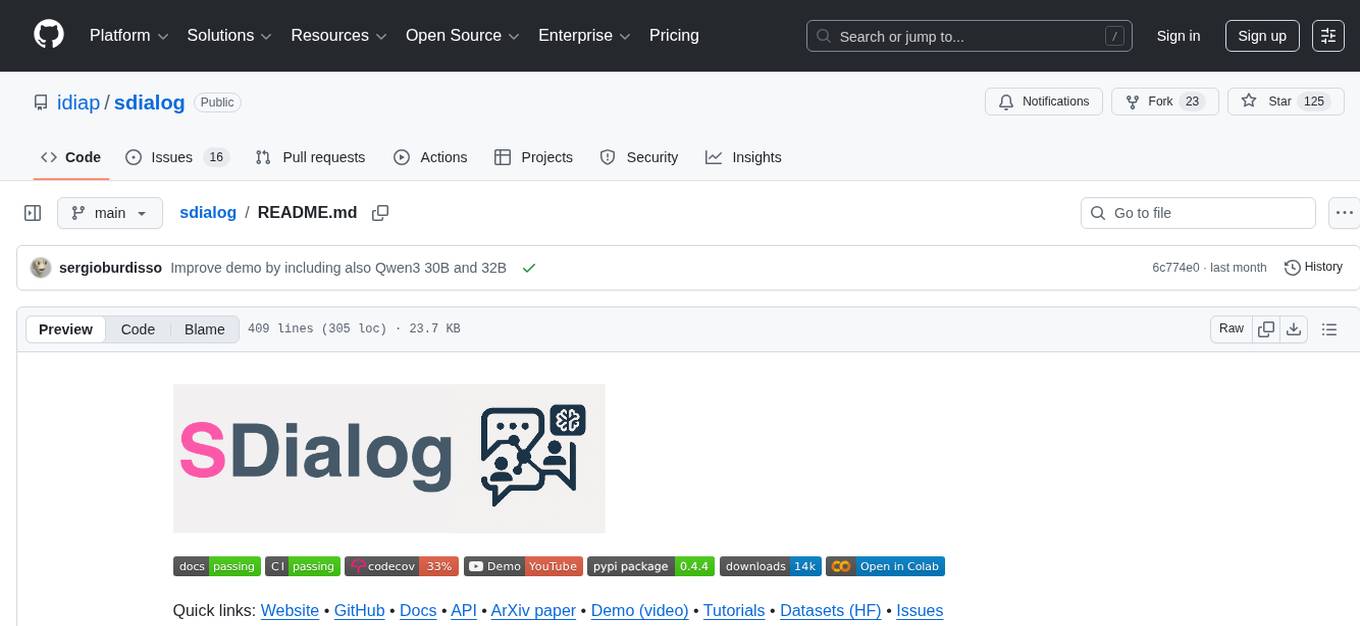
sdialog
SDialog is an MIT-licensed open-source toolkit for building, simulating, and evaluating LLM-based conversational agents end-to-end. It aims to bridge agent construction, user simulation, dialog generation, and evaluation in a single reproducible workflow, enabling the generation of reliable, controllable dialog systems or data at scale. The toolkit standardizes a Dialog schema, offers persona-driven multi-agent simulation with LLMs, provides composable orchestration for precise control over behavior and flow, includes built-in evaluation metrics, and offers mechanistic interpretability. It allows for easy creation of user-defined components and interoperability across various AI platforms.
